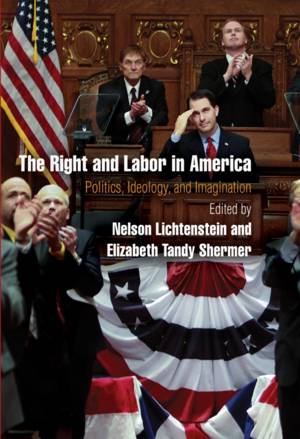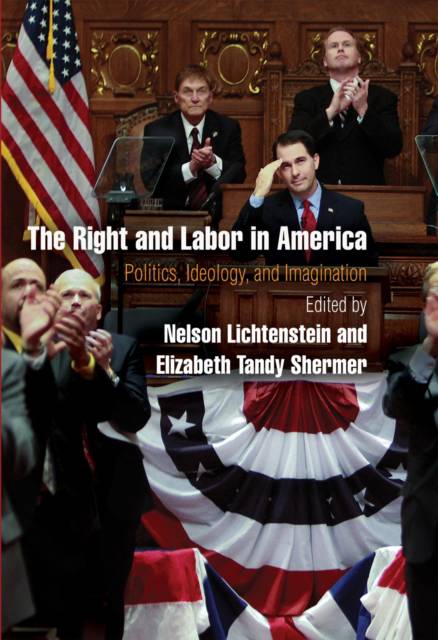
Bedankt voor het vertrouwen het afgelopen jaar! Om jou te bedanken bieden we GRATIS verzending (in België) aan op alles gedurende de hele maand januari.
- Afhalen na 1 uur in een winkel met voorraad
- In januari gratis thuislevering in België
- Ruim aanbod met 7 miljoen producten
Bedankt voor het vertrouwen het afgelopen jaar! Om jou te bedanken bieden we GRATIS verzending (in België) aan op alles gedurende de hele maand januari.
- Afhalen na 1 uur in een winkel met voorraad
- In januari gratis thuislevering in België
- Ruim aanbod met 7 miljoen producten
Zoeken
The Right and Labor in America
Politics, Ideology, and Imagination
€ 69,45
+ 138 punten
Omschrijving
The legislative attack on public sector unionism that gave rise to the uproar in Wisconsin and other union strongholds in 2011 was not just a reaction to the contemporary economic difficulties faced by the government. Rather, it was the result of a longstanding political and ideological hostility to the very idea of trade unionism put forward by a conservative movement whose roots go as far back as the Haymarket Riot of 1886. The controversy in Madison and other state capitals reveals that labor's status and power has always been at the core of American conservatism, today as well as a century ago.
The Right and Labor in America explores the multifaceted history and range of conservative hostility toward unionism, opening the door to a fascinating set of individuals, movements, and institutions that help explain why, in much of the popular imagination, union leaders are always "bosses" and trade union organizers are nothing short of "thugs." The contributors to this volume explore conservative thought about unions, in particular the ideological impulses, rhetorical strategies, and political efforts that conservatives have deployed to challenge unions as a force in U.S. economic and political life over the century. Among the many contemporary books on American parties, personalities, and elections that try to explain why political disputes are so divisive, this collection of original and innovative essays is essential reading.Specificaties
Betrokkenen
- Uitgeverij:
Inhoud
- Aantal bladzijden:
- 440
- Taal:
- Engels
- Reeks:
Eigenschappen
- Productcode (EAN):
- 9780812223606
- Verschijningsdatum:
- 5/04/2016
- Uitvoering:
- Paperback
- Formaat:
- Trade paperback (VS)
- Afmetingen:
- 152 mm x 226 mm
- Gewicht:
- 612 g

Alleen bij Standaard Boekhandel
+ 138 punten op je klantenkaart van Standaard Boekhandel
Beoordelingen
We publiceren alleen reviews die voldoen aan de voorwaarden voor reviews. Bekijk onze voorwaarden voor reviews.








